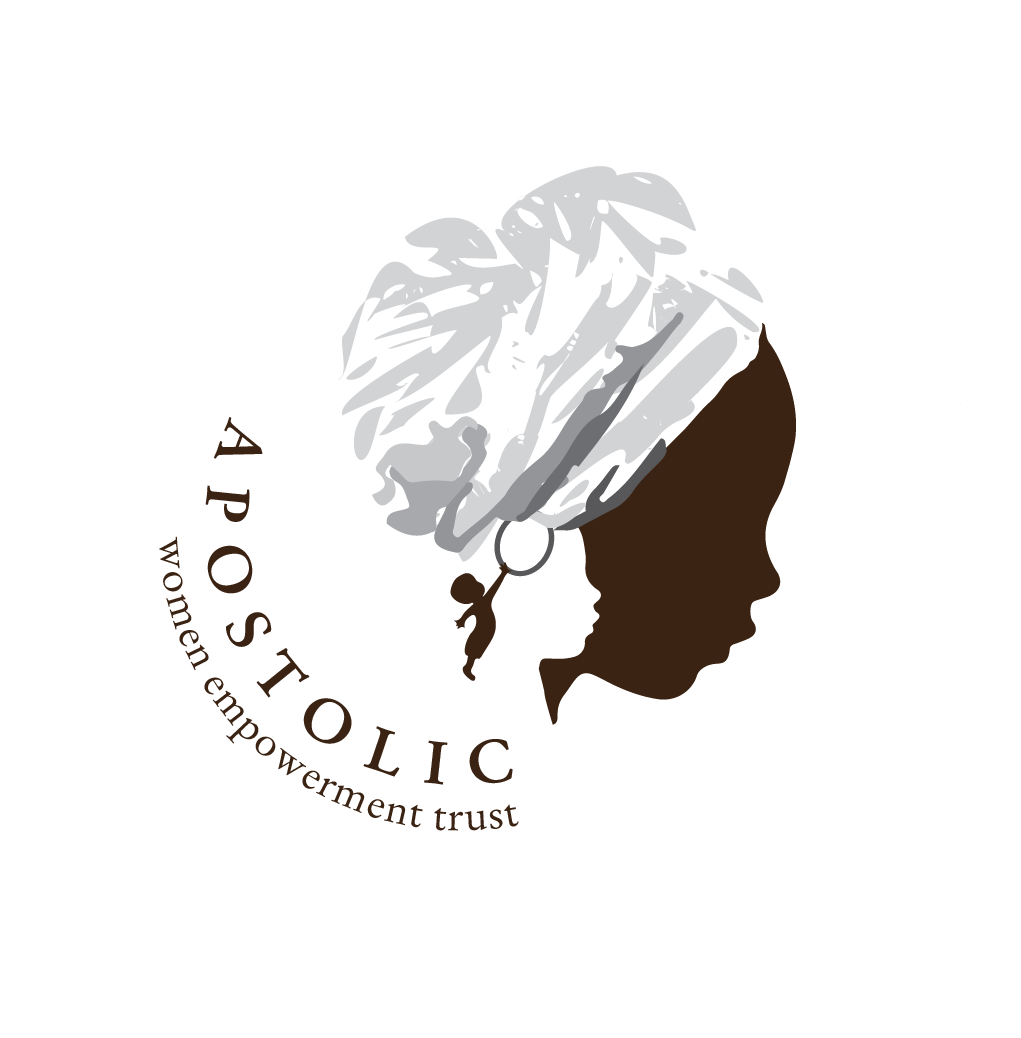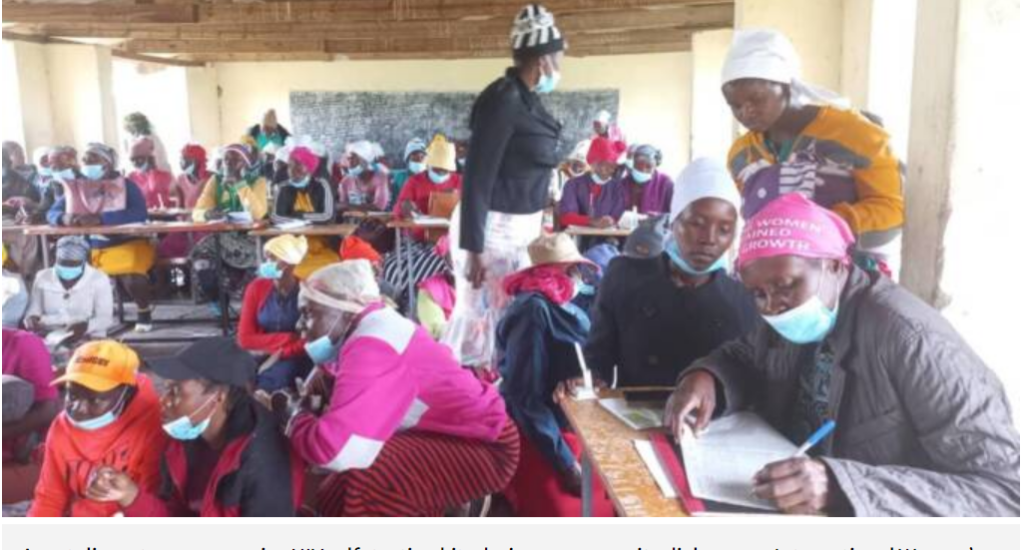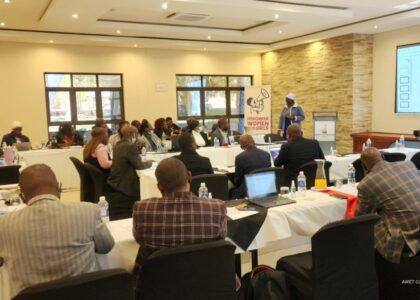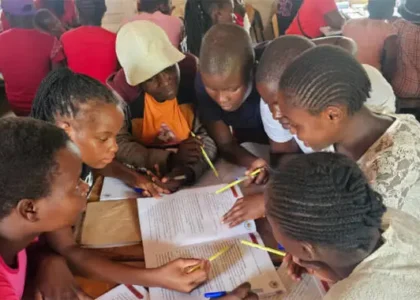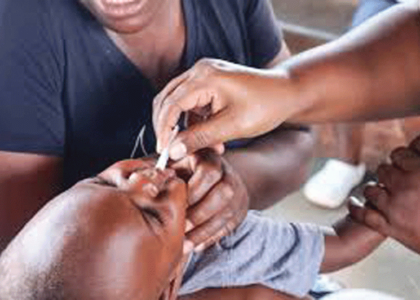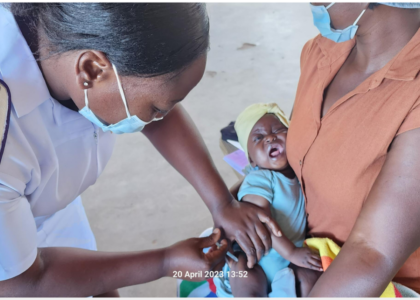By Roselyne Sachiti Assistant Editor Sunday Mail
SISTER Esnath Gombakomba is a primary care nurse at Chibhebhe Clinic in the Bocha area of Manicaland province.
Having worked at the clinic long enough, she knows too well the behaviours of community members, especially women, who seek health services at the facility.
Over the years, fewer women from Apostolic sects visited the clinic for health services like HIV counselling and testing, something that worried her.
To reach out to this community, her team regularly visited the sects’ shrines for engagement.
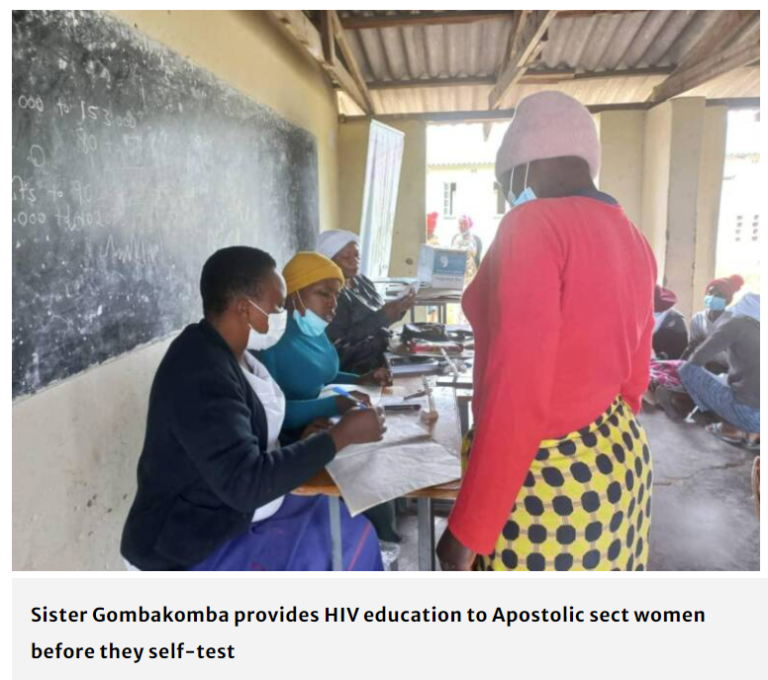
Today, the situation has changed.
Hundreds of women from different Apostolic sects in the Marange area recently gathered at Chibhebhe Clinic for a community dialogue on International Women’s Month — organised by the Apostolic Women’s Empowerment Trust (AWET), with support from the US President’s Emergency Plan for AIDS Relief (PEPFAR).
Excited by the huge turnout, Sister Gombakomba and her colleagues disseminated important information on interventions that women can use to protect themselves from HIV — what to do when exposed to the virus — and how to move on and live a healthier life if a person tests HIV positive.
Sister Gombakomba recalled how in the past, it was not easy for the women to visit the health facility as a result of varying reasons.
Women from the Apostolic sects never came for HIV testing at our clinic.
Today, we tested more than 100 women for HIV. This was the first time for them to test for HIV in a clinic setting. The women were excited.
What excited me is that most were willing to be tested. No one opted out. They were all interested in HIV testing. I have never seen such eagerness from them,” said Sister Gombakomba.
She said at the meeting, women were equipped with knowledge about HIV counselling and testing, pre-exposure prophylaxis (PREP) and post-exposure prophylaxis (PEP), subjects they had never heard about.
PREP is the use of medications to prevent the spread of a disease in people who have not yet been exposed to a disease-causing agent, usually a virus.
PEP means taking medicine to prevent HIV after possible exposure.
“The women were more excited and interested in knowing about PREP,” said Sister Gombakomba.
At the meeting, the women were also educated on the importance of disclosing one’s HIV status and adherence to anti-retroviral treatment (ART) for those who would have tested positive.
The Apostolic women also received lessons on HIV self-testing and were given HIV self-testing kits.
Apart from the Apostolic sect female members, other women in the community, too, have been tested for HIV. This is a huge success story for this community as their outcomes contribute to the country’s triumph in achieving the UNAIDS 95-95-95 targets.
Zimbabwe is now one of only three Sub-Saharan African nations to have met the UNAIDS’ 95-95-95 HIV objectives.
In 2020, the country achieved the UNAIDS’ 90-90-90 targets, placing it among the few African countries to do so. The country is also making significant progress towards meeting the 2025 targets and such initiatives further place Zimbabwe up the ladder to reach this goal.
Carrying out numerous activities,
Speaking to The Sunday Mail, AWET head of programmes Ms Hope Dunhira said in Manicaland Province and around the country, their organisation has been working with relevant line ministries to complement Government efforts to ensure that gaps identified in communities are plugged.
“AWET has been carrying out numerous activities, with support from different partners such as UNICEF, Anglo American, PEPFAR, ACT Ubumbano and Plan International.
“Firstly, in Manicaland province, AWET commemorated International Women’s Day (IWD) through conducting engagements with women from the different Apostolic communities. This saw around 100 women volunteering to get tested for HIV, which has never been possible with the Apostolic community,” said Ms Dunhira.
She added that AWET also held IWD celebrations with women in Shamva, where focus group discussions were carried out with members of the Apostolic community.
“An end child marriage campaign was also held across all districts AWET is operating in. The trained behaviour change facilitators (BCFs) from AWET went on a door-to-door campaign to sensitise communities on the effects of child marriage,” she added.
Ms Dunhira said AWET also shared messaging on social media around Women’s Month and the importance of celebrating women every day.
“As we wind up, AWET has been training adolescent girls and young women (AGYW) on entrepreneurship skills, focusing on the use of digital equipment, hence the theme for this year,” she revealed.
This, she said, was in line with this year’s International Women’s Month global theme “DigitALL: Innovation and Technology for Gender Equality”.
More than 12,000 women have benefitted from AWET initiatives.
“For example, women from the Apostolic community in the past, especially from the conservative Apostolic churches, have never had HIV tests done, but with the engagements and dialogues AWET has been carrying out, many women ended up getting tested and now know their status.
“This has helped to contribute towards the 95-95-95 target where HIV testing, and uptake of medication is being encouraged, as well as adherence for those on medication,” explained Ms Dunhira.
She revealed that, apart from the health interventions, there was engagement during intergenerational dialogues. Women were also empowered to make dishwashing liquid and candles, and to bake.
“This is a livelihood empowerment model that AWET has been using in Manicaland under the SAGE project. This has improved the livelihoods of women and girls.
“They can now get income from selling the dishwashing liquid and candles they are making. In Shurugwi, the women are making a living through selling reusable pads they were trained to make by AWET through the Anglo-American support,” noted Ms Dunhira.
She further said training of AGYW in Shurugwi district has been a milestone. AGYW were taught basic accounting, usage of money, self-help projects and social marketing.
In March, AWET also worked with community volunteers and trained BCFs to ensure that gender equality messaging is cascaded to all communities through village savings and lending schemes (VSLs) that have enabled women to start small projects for sustenance.
AWET, under the “Supporting Adolescent Girls Education”, has also made sure girls from the Apostolic community continue to get a second chance to education through numeracy and literacy skills acquisition.
“AWET has also been engaging with adolescent girls and boys and the youth from the Apostolic community on sexual reproductive health (SRH) issues, as well as menstrual hygiene and mental health awareness, under an ACT Ubumbano support project. The trained AGYW now understand the importance of literacy and numeracy in a small business, and coming up with profit and losses for business continuity and sustainability.”
While a lot is being done, some emerging challenges still pop up. Ms Dunhira said emerging challenges include a demand for education opportunities, where children are willing to transition back to the formal school setting, but cannot due to lack of resources.
“In some instances, we have noted that most children do not have birth certificates. This is proving to be a challenge, especially in the event that child abuse is to be reported. There will be no evidence as the age of the child cannot be ascertained. Out of school young women require entrepreneurial skills since they can’t afford to further studies,” she emphasised.
She revealed that Apostolic churches were also on a drive to build schools across the country, a huge milestone for this community and a sign that the message to keep the girl child in school is being accepted across Zimbabwe.
“Apostolic girls who had never been to school or had dropped out before completing primary education have been given a second chance to education as they have been receiving literacy and numeracy skills that will help them in their day-to-day lives.”
She said they have a crucial role to play in empowering the Apostolic woman and girl child as a way of bridging the marginalisation gap that has always been glaringly obvious for a long time.
“AWET is made up of Apostolic people from different churches.
“It is important for us to continue to create dialogue and hold engagements to ensure the child and women are protected within Apostolic communities.
“It is also important for us to play the role of a catalyst in ensuring there is a mindset shift within Apostolic communities, where we move from watching abuse happening to women and girls to a point where we actually take action to prevent that abuse and protect the child,” Ms Dunhira said.

